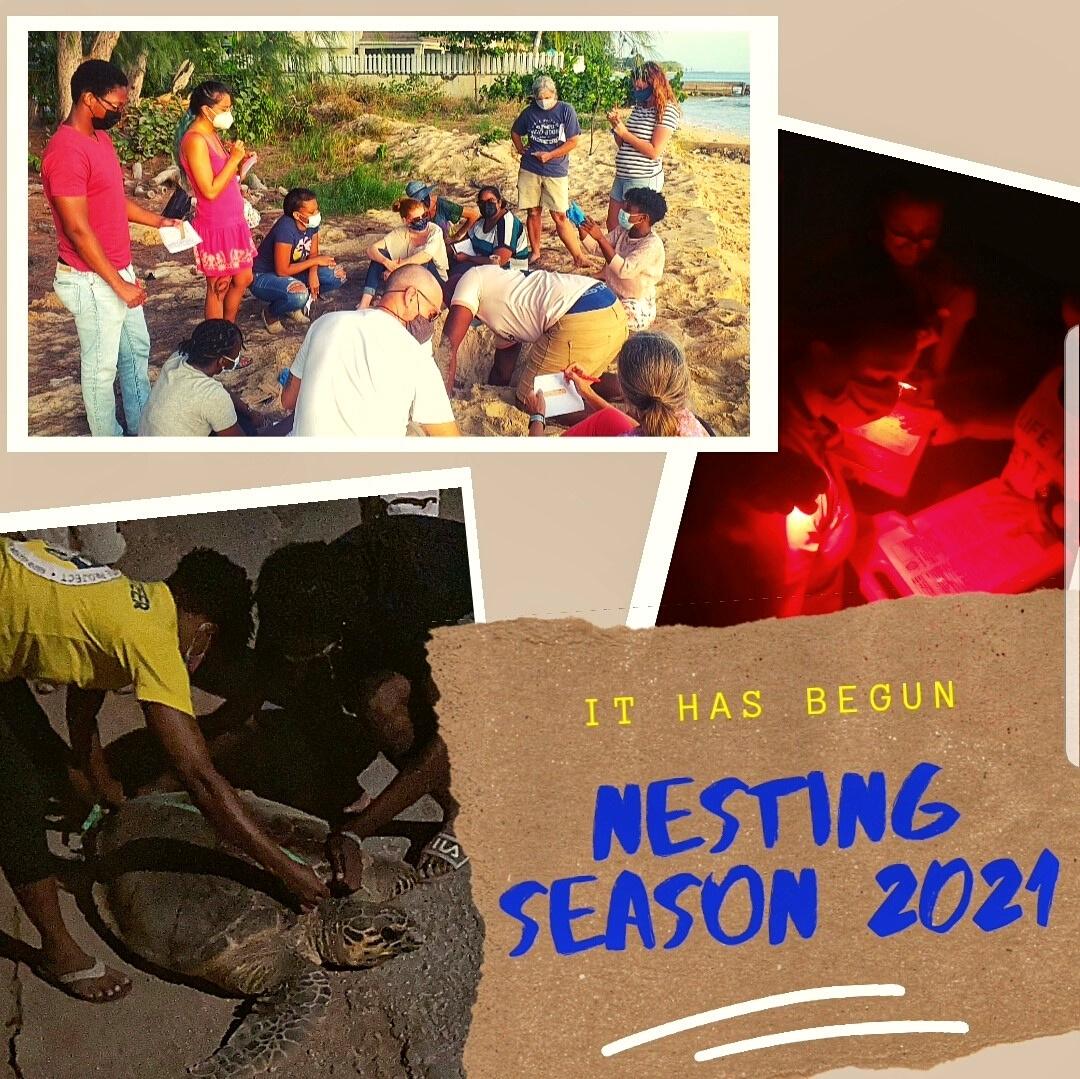
2 minute read
The Barbados Sea Turtle Project
By Professor Julia Horrocks and Carla Daniel The Barbados Sea Turtle Project, University of the West Indies' Cave Hill Campus
The Barbados Sea Turtle Project (BSTP), based at the University of the West Indies' Cave Hill Campus, is the home of the regional Marine Turtle Tagging Centre (MTTC) of the Wider Caribbean Sea Turtle Conservation Network.
Advertisement
This centre was established in 2000 with a grant from the Global Environment Facility (GEF) Small Grants Programme (SGP) implemented by UNDP. For over 20 years, the MTTC has provided turtle flipper tags and applicators, and archived tag fate data, for over 30 sea turtle projects in the region. Many of these projects also include a non-consumptive sea turtle ecotourism elements based on best practices, which has provided a source of income for local communities. We have been fortunate to obtain a second grant from GEF SGP UNDP to purchase additional tags and tag applicators - replacing depleted stock- and to expand our national and regional training efforts.
This year, thanks to this grant, we have been able to offer persons from sea turtle projects in the region the opportunity to be trained alongside BSTP volunteers in a South to South Exchange. Barbados is well known for the success of its sea turtle conservation activities. The degree to which the hawksbill population has recovered thus far allows trainees to work with large numbers of turtles and experience the challenges posed by extensive coastal development. Trainees are introduced to the theory of sea turtle conservation through hybrid sessions and then practical field sessions. Following this they have the opportunity to hone these skills in the field, cementing their knowledge with practice. This also exposes them to situations that they may otherwise only rarely encounter in their own countries. They work on the beach all night between 8pm and 4am or through the day from 8am to 4pm, on alternating periods of night and day shifts.

Connect with The Barbados Sea Turtle Project Sea Turtle 24 Hour Hotline: 230-0142
We are able to offer regional trainees accommodation as well as a stipend to cover their food. The accommodation “base” provides a central area for storing equipment and incubating nests, and allows persons to be trained in techniques like nest relocation, and ex situ egg incubation and care of premature hatchlings.
There are a number of growing challenges for sea turtle conservation in the Caribbean and this has resulted in the need to develop new mitigation strategies. One of these challenges is beach erosion due to more extreme weather events and high seas, as well as increasing impacts of coastal development. It is critical that sea turtle conservation projects in the region are ready to respond to these new challenges.








